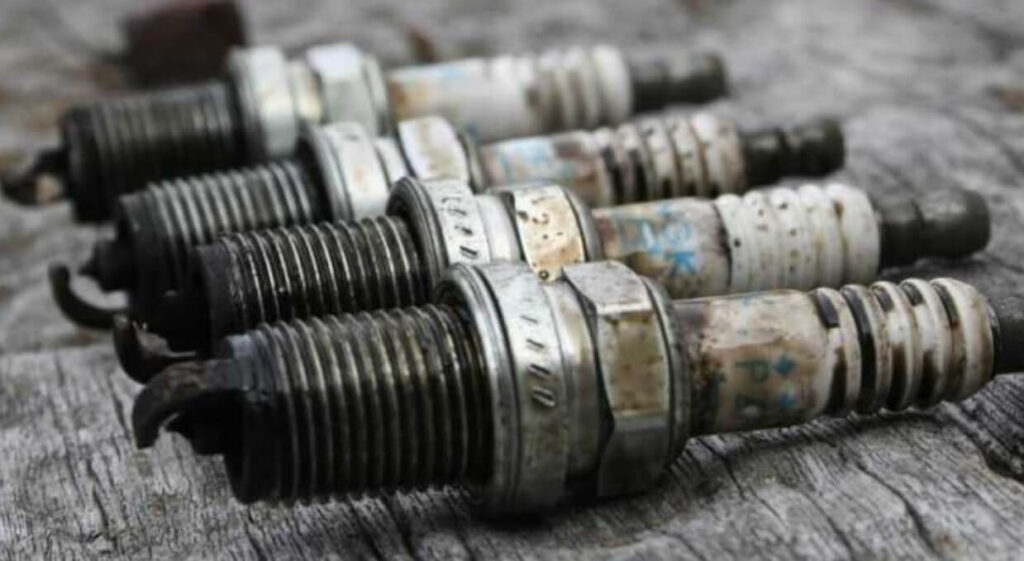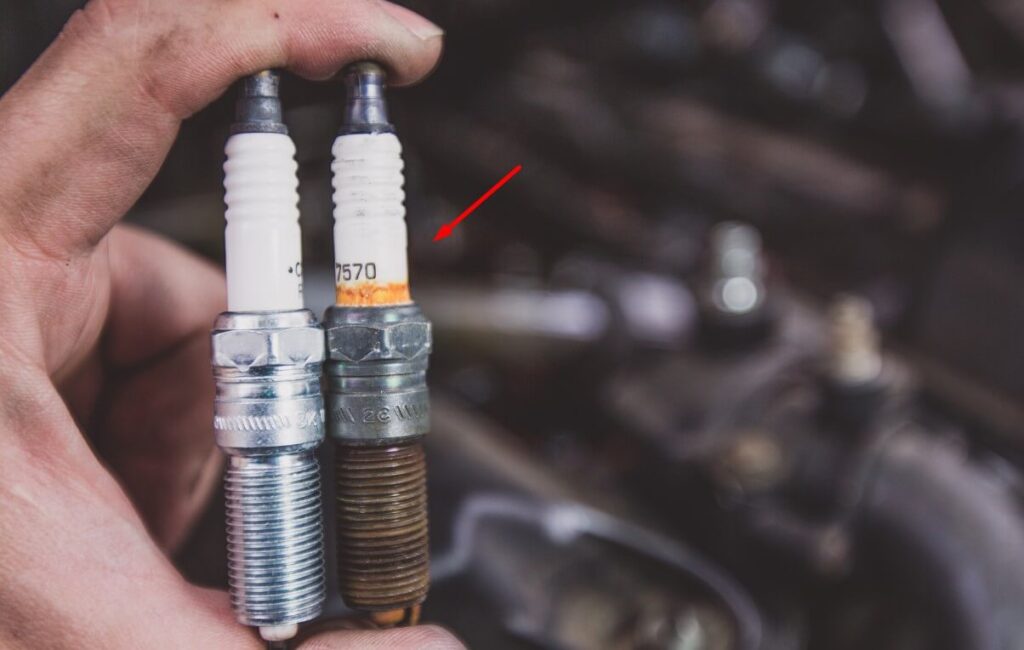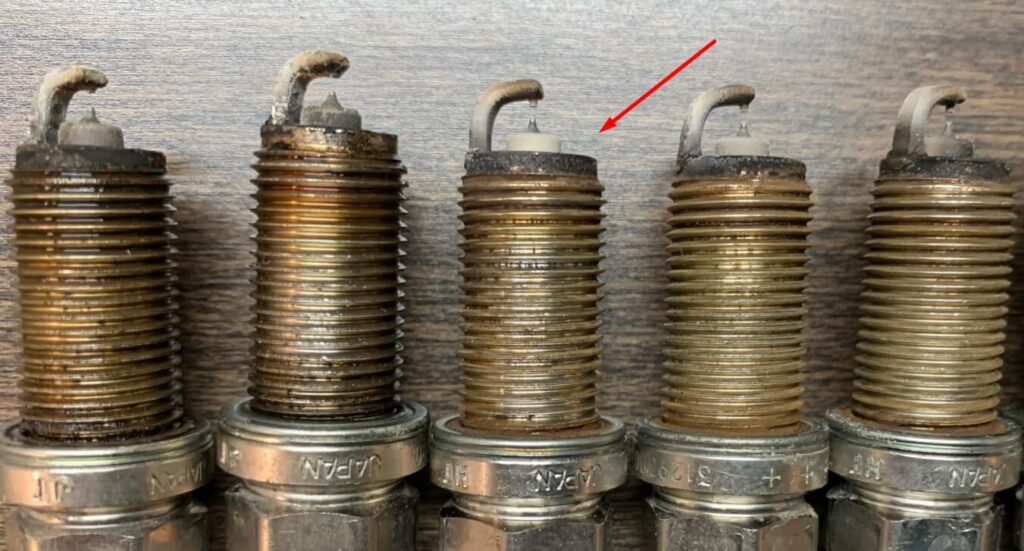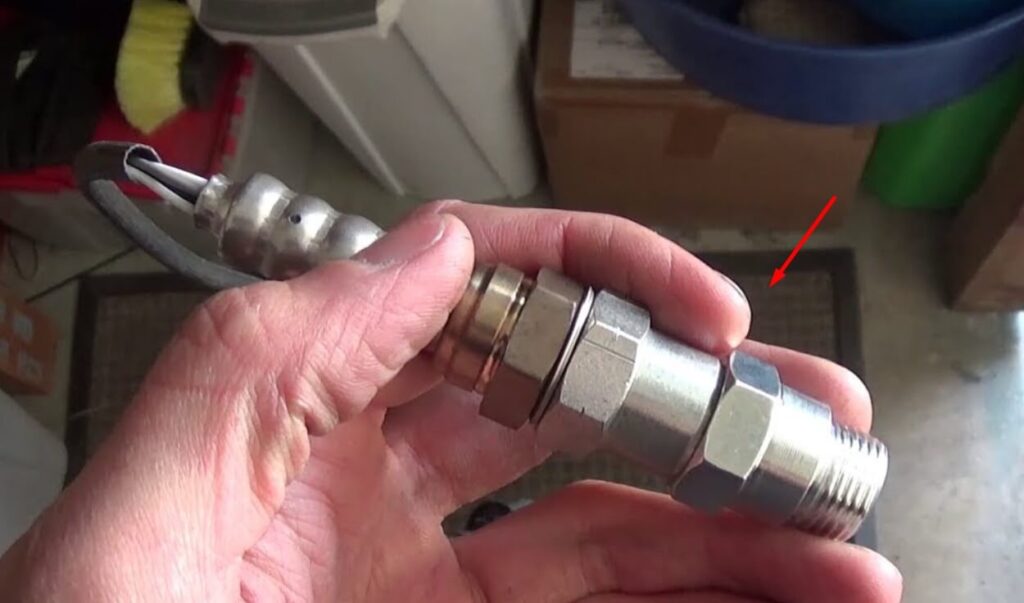Yes, bad spark plugs can indirectly affect the catalytic converter. When spark plugs are not functioning properly, they may cause incomplete combustion of fuel in the engine. This can lead to an increase in unburned hydrocarbons and other pollutants reaching the catalytic converter. Over time, the converter may become overwhelmed and less effective in reducing emissions.
Therefore, maintaining and replacing faulty spark plugs is crucial to prevent potential damage to the catalytic converter and ensure proper engine performance.

The Basics: Spark Plugs and Their Function
Let’s start at the beginning. Spark plugs are like the unsung heroes of your engine, creating the spark that ignites the air-fuel mixture. This combustion is what powers your car. Spark plugs are crucial components in internal combustion engines, responsible for initiating the combustion process. Positioned at the top of each cylinder, they produce an electric spark that ignites the air-fuel mixture within the combustion chamber.
This ignition sets off a controlled explosion, generating the power needed to drive the engine. Spark plugs play a vital role in ensuring efficient fuel combustion, optimal engine performance, and overall vehicle functionality. Regular maintenance and replacement of spark plugs are essential for sustaining fuel efficiency, reducing emissions, and preventing engine misfires.
Symptoms of Bad Spark Plugs
Bad spark plugs can manifest in various symptoms that impact engine performance. One common sign is rough idling, where the engine produces uneven or shaky vibrations when at rest. Additionally, poor acceleration and reduced power can result from ineffective spark plugs, causing sluggish or hesitant engine response.
Misfires, characterized by a jerking sensation during acceleration, indicate a lack of proper ignition in one or more cylinders. Decreased fuel efficiency and an increase in exhaust emissions may also occur. Difficulty starting the engine, especially in colder conditions, is another indicator of potential spark plug issues.
How Spark Plugs Impact Combustion?
Spark plugs play a crucial role in the combustion process within a car’s engine. Positioned at the top of each cylinder, they generate an electric spark that ignites the air-fuel mixture. This ignition initiates controlled combustion, resulting in the release of energy that powers the engine. The efficiency and effectiveness of this combustion directly depend on the spark plugs.
Properly functioning spark plugs ensure a timely and consistent ignition, promoting efficient fuel combustion. In contrast, worn or faulty spark plugs can lead to incomplete combustion, causing issues like misfires, rough idling, and reduced power.

What Causes a Catalytic Converter to Break Apart?
Catalytic converters can break apart due to overheating caused by unburned fuel entering the exhaust system. This unburned fuel ignites within the converter, leading to excessive temperatures that may melt the internal catalyst substrate.
Additionally, impacts from road debris or physical damage to the converter can result in structural failure and breakage. Poor engine performance, such as misfires or a malfunctioning oxygen sensor, can also contribute to catalytic converter damage by causing an imbalance in the air-fuel mixture.
How Long Can Bad Spark Plugs Affect Catalytic Converters?
Bad spark plugs can affect catalytic converters relatively quickly if left unaddressed. When spark plugs are not functioning correctly, the air-fuel mixture may not combust efficiently, leading to unburned fuel entering the exhaust system. This can cause the catalytic converter to overheat due to the combustion of fuel within it. Over time, this repeated stress and overheating can lead to damage and degradation of the catalytic converter.
The duration it takes for this damage to occur can vary, but prompt replacement of faulty spark plugs is essential to prevent prolonged negative effects on the catalytic converter and maintain overall vehicle performance.
Can Bad Spark Plugs Cause a p0430 Code?
Yes, bad spark plugs can indirectly contribute to a P0430 code. The P0430 code specifically indicates a potential issue with the catalytic converter’s efficiency in Bank 2 of the engine. While spark plugs themselves may not directly trigger this code, their improper functioning can lead to inefficient combustion, causing unburned fuel to enter the exhaust system.
This, in turn, can increase the workload on the catalytic converter, potentially causing it to degrade over time. Addressing spark plug issues promptly and ensuring proper combustion is crucial to prevent the development of conditions that might trigger a P0430 code related to catalytic converter efficiency.

Can Bad Spark Plugs Cause a p0420 Code?
Yes, bad spark plugs can contribute to a P0420 code. The P0420 code indicates a potential issue with the catalytic converter’s efficiency in Bank 1 of the engine. Faulty spark plugs can lead to incomplete combustion, causing unburned fuel to reach the catalytic converter. Over time, this can degrade the converter’s efficiency and trigger the P0420 code.
Can Bad Spark Plugs Affect Catalytic Converter Toyota?
Yes, bad spark plugs can affect the catalytic converter in a Toyota. When spark plugs are not functioning properly, they can lead to inefficient combustion, causing unburned fuel to enter the exhaust system. This can result in increased stress and overheating of the catalytic converter, potentially leading to damage and reduced efficiency over time.
Regular maintenance, including the timely replacement of bad spark plugs, is crucial to prevent adverse effects on the catalytic converter and ensure the proper functioning of the vehicle.
Will Changing Spark Plugs Fix p0420 Code?
Changing spark plugs alone is unlikely to fix a P0420 code. The P0420 code typically indicates a potential issue with the catalytic converter’s efficiency. While faulty spark plugs can contribute to conditions that affect the catalytic converter, addressing the P0420 code may require a more comprehensive approach. Common causes include a failing catalytic converter, oxygen sensor issues, or exhaust system leaks.
It is advisable to diagnose the specific problem by checking the oxygen sensors, inspecting the catalytic converter, and examining the exhaust system. A thorough inspection and proper diagnosis will help identify and address the root cause of the P0420 code for an effective solution.

Repairing vs. Replacing Spark Plugs
When faced with spark plug issues, the decision between repairing and replacing becomes crucial. While repairing might offer a temporary fix, opting for replacement ensures a longer-lasting solution, reducing the risk of catalytic converter damage.
Can DIY Maintenance Help?
DIY spark plug maintenance is an option, but it comes with its share of risks. Incorrect installation or overlooking underlying issues can exacerbate problems, potentially harming the catalytic converter. Seeking professional help guarantees accurate diagnosis and proper maintenance.
Professional Maintenance Recommendations
Experts unanimously recommend professional maintenance for both spark plugs and catalytic converters. Scheduled checkups, timely replacements, and adherence to manufacturer guidelines can significantly prolong the lifespan of both components.
A proactive approach to vehicle maintenance involves future-proofing against potential issues. Regular spark plug checkups, adherence to maintenance schedules, and a keen eye on performance indicators can safeguard both spark plugs and catalytic converters, ensuring a long and healthy vehicle life.
Conclusion
Picture this: your engine struggling to ignite the air-fuel mixture due to worn-out spark plugs. The consequence? Poor combustion, reduced power, and an overall drop in performance. Unburned fuel then makes its way to the catalytic converter, initiating a cascade of problems that can be avoided with timely spark plug maintenance.
Undoubtedly, bad spark plugs can exert a profound impact on your catalytic converter. The domino effect of inefficient combustion, increased emissions, and potential converter damage underscores the importance of regular spark plug maintenance.
